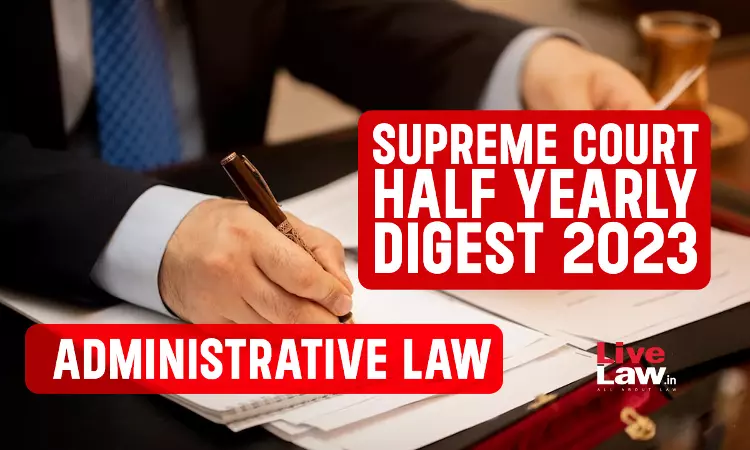Supreme Court Half Yearly Digest 2023, Administrative Law
LIVELAW NEWS NETWORK
10 Aug 2023 10:17 AM IST

Next Story
10 Aug 2023 10:17 AM IST
A notification which is not in compliance with clause (1) of Article 77 is not invalid, unconstitutional or non-est for that reason alone. Rather, the irrebuttable presumption that the notification was issued by the President of India (acting for the Union Government) is no longer available to the Union Government. The notification continues to be valid and it is open to the Union Government...
